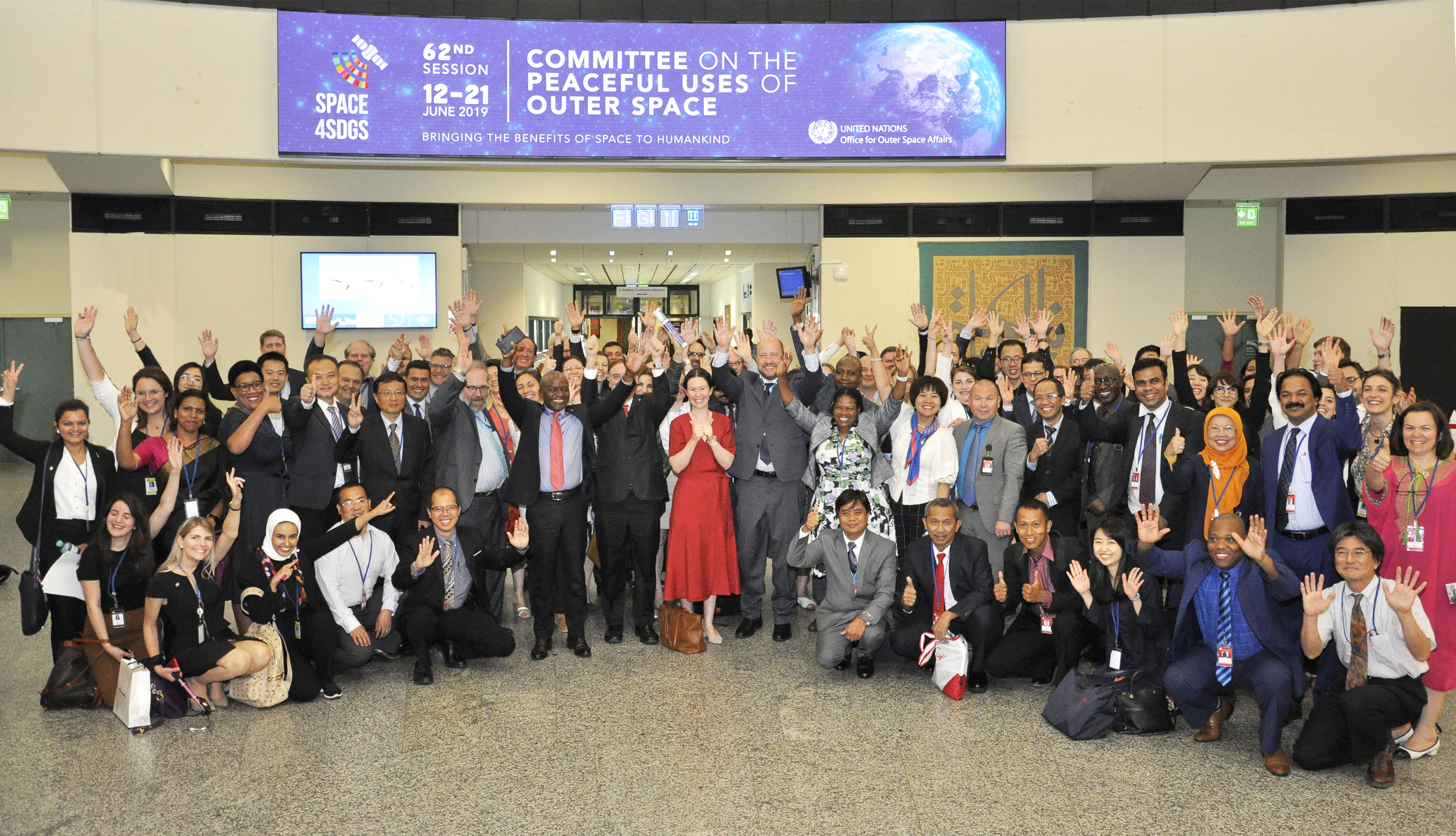Long-term Sustainability of Outer Space Activities
Space science and space applications advance our knowledge of the universe. They also improve the daily lives of people worldwide through their contributions to, among other things, environmental monitoring, management of natural resources, meteorological forecasting, climate modelling, satellite navigation, communications, and early warning systems to help mitigate potential disasters. If the international community wishes to increase access to the benefits of current space applications, and develop new technologies which may offer further benefits, there is a need to preserve and protect the outer space environment for use by future generations. Space activities need to be sustainable over the long term.
Throughout the years, the Committee on the Peaceful Uses of Outer Space has considered different aspects of the long-term sustainability of outer space activities. Building on previous efforts, in 2010 the Scientific and Technical Subcommittee began considering as an agenda item the long-term sustainability of outer space. A Working Group on the Long-term Sustainability of Outer Space Activities was established, the objectives of which included identifying areas of concern for the long-term sustainability of outer space activities, proposing measures that could enhance sustainability, and producing voluntary guidelines to reduce risks to long-term sustainability. The Working Group and its expert groups addressed thematic areas including sustainable space utilization supporting sustainable development on Earth; space debris, space operations and tools to support collaborative space situational awareness; space weather; and regulatory regimes and guidance for actors in the space arena.
In June 2016 the Committee agreed to a first set of guidelines for the long-term sustainability of outer space activities (
A/71/20, Annex).
In 2018, consensus was reached on a preamble and nine additional guidelines (
A/AC.105/1167, Annex
III
and
A/73/20
), although the Working Group could not agree on its final report.
 In June 2019, the Guidelines for the Long-term Sustainability of Outer Space Activities of the Committee on the Peaceful Uses of Outer Space were adopted
(
A/74/20, para 163 and Annex II) . The Guidelines
provide guidance on the policy and regulatory framework for space activities; safety of space operations; international cooperation, capacity-building and awareness; and scientific and technical research and development.
In June 2019, the Guidelines for the Long-term Sustainability of Outer Space Activities of the Committee on the Peaceful Uses of Outer Space were adopted
(
A/74/20, para 163 and Annex II) . The Guidelines
provide guidance on the policy and regulatory framework for space activities; safety of space operations; international cooperation, capacity-building and awareness; and scientific and technical research and development.
The Committee encourages States and international intergovernmental organizations to voluntarily take measures to ensure that the guidelines are implemented to the greatest extent feasible and practicable. The Committee should also serve as the principal forum for continued institutionalized dialogue on issues related to the implementation and review of the guidelines. (
A/74/20, para 163 & 164).
At its sixty-second session in 2019, the Committee likewise decided to establish a new working group on the topic under the Scientific and Technical Subcommittee (
A/74/20, para. 165).
Update: In response to a direct request from States, in 2025 UNOOSA developed the Long-term Sustainability of Outer Space Activities Information Repository. The Repository is an open source tool and there is an ongoing open call for new contributions.
You can also see below for recent documents relating to space sustainability.